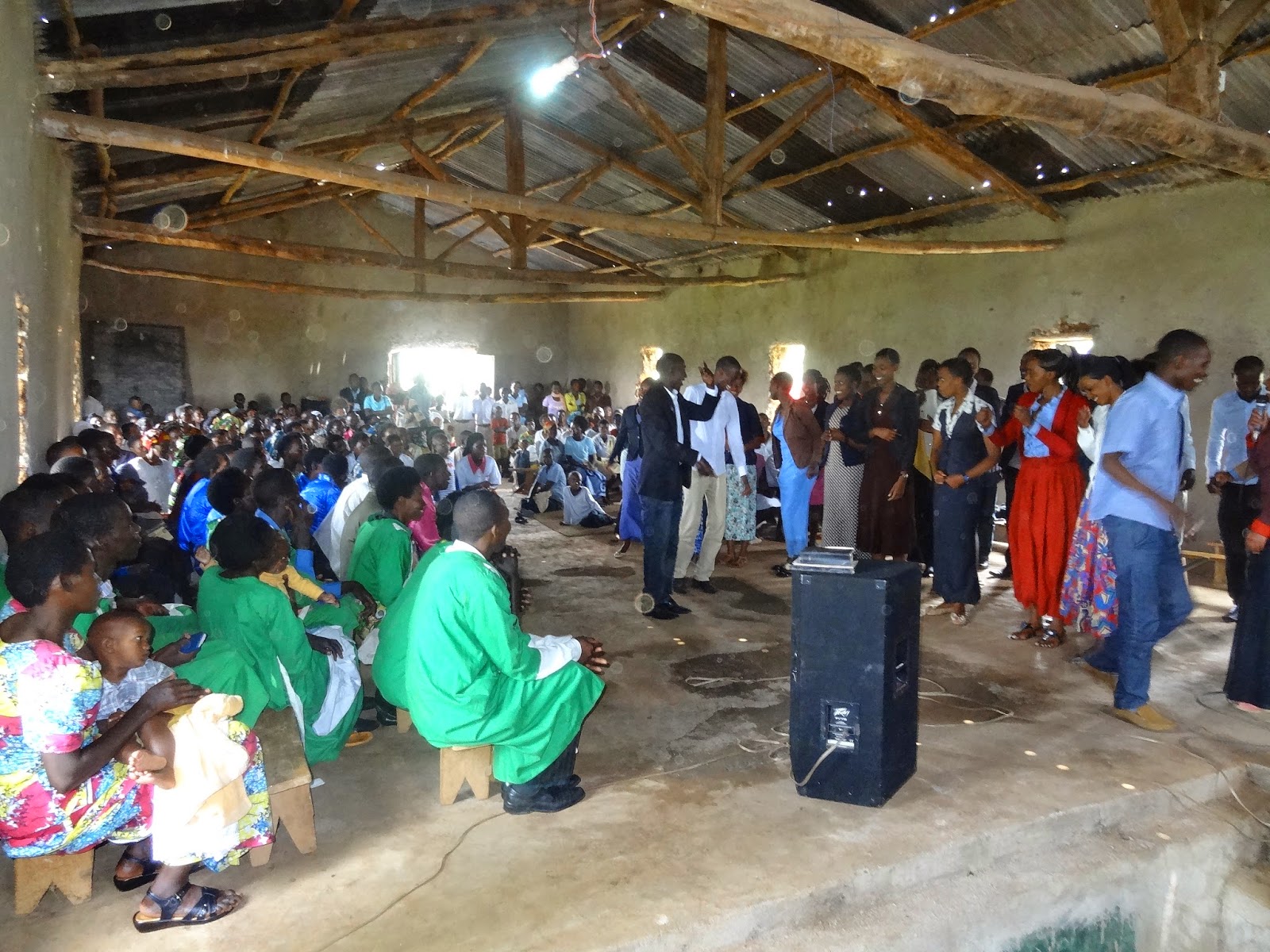I have had
several opportunities to go to churches of my students on a Sunday. Usually I
am able to hire a car and driver from PIASS but this past Sunday I was not able
to. I was going with two students from the same area. We were going to Edith’s
church and Samuel was to translate for me. We decided that we would take to bus
to a certain point, drop at Lugobagoba trading center and then take motorcycles
from there to the church, about 17 kilometers.
Then the pastor contacted Edith and insisted that we hire a taxi driver who had
driven the pastor, to make the trip easier. We agreed and all was put in place.
We left the
PIASS campus at 6 a.m. to walk the mile and a half to the bus depot in town to
catch the 6:30 bus. At Lugobagoba we had to wait for the taxi for about 20
minutes, but he finally arrived. On the way to the church was the church where
Samuel worshipped, so he had made arrangements for us to stop there for the
pastor of his parish to greet us. In true African fashion, he had tea prepared
for us, even thought he was leaving to go to one of his chapels for worship. He
entertained us as if there were no rush. After tea, we greeted the Sunday
school of over 200 children which was being held in the church sanctuary, then
continued on to Edith’s parish.
 |
| Edith's church, prepared for Cummunion |
We arrived at about
9:30. The congregation had gathered and was singing, waiting patiently for the
service to begin. The building has been under construction for the past ten
years. It is a large structure that is now roofed, but without flooring or
windows or doors, but that does not stop joyful worship. The pastor and I
processed in with Edith and Samuel following and the service began in earnest.
Five choirs sang. Before the preaching, the congregation dances and sang. We literally
had to wait for the dust to settle after the dancing. I preached and Samuel
translated for me and then the pastor and I served Holy Communion. Following
communion, there were testimonies and offerings. Here, as in many rural
churches, folks bring produce as offerings and the bananas or beans or onions
or avocados are auctioned off and the proceeds are added to the offering. This
process takes time. The service ended at 1:30, which is not an unusually long
communion service. After greeting the congregation, we had lunch with the
elders. We called the taxi driver to come, but he claimed he had a problem with
the car, so the pastor called another taxi driver who arrived within 15
minutes. We said our farewell and headed off, to make a few stops along the
way.
 |
| Samuel (5th in back) with his family |
The first was at
the house that Edith owns near the church.
She and her husband built it but he is now working in Kigali and she in
at school in Butare, so they rent it out. She wanted me to see it and offer a
blessing on the house, which I did. From there we headed to Samuel’s family.
But the taxi driver stopped the vehicle, refusing to take us, saying the road
was too rough. After much negotiating, he agreed to take us so far and we could
walk the rest of the way, but he grumbles that the muzungu (white person) should not walk. I insisted that I was able
and wanted to. We proceeded on a very rough road for about 6 miles and stopped
the car in a small village where Samuel’s uncles live, then walked about 2
miles on the hillside on a narrow path, up and down to a small cluster of
houses, which are Samuel’s mother’s and his three older brothers’ homes. They were
waiting to welcome us. It was the first time they had hosted a muzungu. We could not stay long because
it would soon be dark and there were storm clouds gathering; rain was near. We
had drinks and prayer; they gave us gifts of pineapples and we took photos and said
farewell, but in Rwandese fashion, all 18 of them escorted up the road to the
car, including Samuel’s 70 year old mother. We chatted all the way, asking one another
questions and laughing at some of the answers of one another’s cultures. The 2
miles did not seem so long. There is great blessing in walking together.
We drove quickly
to the main dirt road and reached it before the rains began. This was a
blessing, too. By the time we reached Lugobagoba, the rain had stopped. We
boarded a mini bus and headed to Muhanga, where we hoped to get a large bus
back to Butare. With many stops long the way to drop of and pick up passengers,
we were late. Because it was Sunday, the buses stop at 6 p.m. We arrived at
6:20, too late to get public transportation to Butare. But God is good; we were
not stranded. My colleague Celestin, the president of Gitarama Presbytery,
lives in Muhanga. I called him and explained our situation and he sent his car
and driver to take us to Butare. I gladly paid for fuel and the driver Donah’s
time and we had a comfortable ride right
to our doorstep. We arrived at 8:45 p.m. and praised God for a wonderful adventure and for his gracious provision. It had been a blessed day, .
























